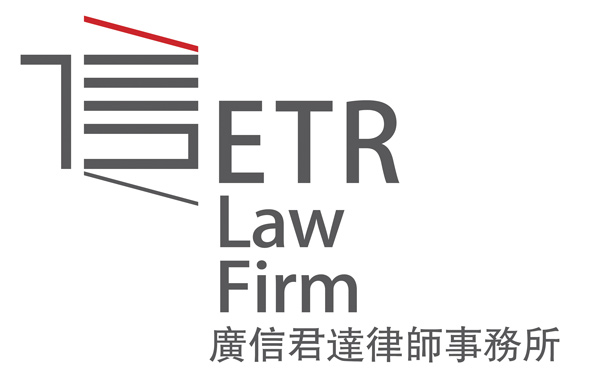In light of recent amendments to the Company Law and judicial precedents, common and contentious legal issues are arising for companies in contracted operations.
In this article, the author examines this unique business model and provides legal insights into mitigating unnecessary legal risks.
Contracting parties

Partner
ETR Law Firm
In contracted operations, the eligible employer is the company itself rather than an individual shareholder. However, it’s common in practice for shareholders to sign such contracts with third parties or contractors.
While shareholders cannot act as the employer, they can represent the company in signing such contracts.
The Supreme People’s Court recognised this in a judgment of Guangxi Provincial Higher People’s Court: “Although shareholders are not the employer in the contracted operation business, all shareholders of the company have agreed to the contractor operating the company. In fact, the contractor has effectively managed the company. Therefore, the company, as the employer of the contracted operation contract, can initiate a lawsuit in the name of the plaintiff in accordance with legal provisions.”
Based on this judicial practice, it’s advisable for the company to directly enter into contracts with contractors. This aligns with mainstream judicial opinion, enhancing transaction security and reducing contract uncertainty.
Contract validity
Contracted operation contracts should clearly specify whether the company’s activities require specialised qualifications.
Generally, if the contractor operates under the name and licences of the employer without the need for specialised qualifications, such contracts are deemed valid. For example, contracts for catering services.
However, in specialised fields like medicine, construction or mining, the contractor poses significant threats to public interests if lacking the required operating licences.
In such cases, contracting out the operational rights through contracted operation contracts would be considered as a disguised lending or leasing of industry qualifications, rendering the contracts invalid for violating mandatory provisions regarding effectiveness.
In a contracted operation involving industries with specialised qualification requirements, the author suggests that the employer should not merely be a “hands-off landlord”. While the employer may not directly interfere with the contractor’s operations, they should provide necessary supervision over the company’s operations.
They should also offer appropriate technical and manpower support in line with the requirements of specialised operating qualifications. In this scenario, the risk of the contracted operation contracts being deemed invalid significantly decreases; avoiding being labelled as a “contracted operation in name only, but actually a form of affiliation with the company”.
Impact of shareholder resolutions
If a company decides to outsource its operational rights, it must undergo the internal shareholder resolution process. In such cases, would flaws in shareholder resolutions affect the validity of the contracted operation contract?
According to article 6 of the Judicial Interpretation IV of the Company Law and article 28 of the new Company Law scheduled to take effect on 1 July 2024, shareholder resolutions and contracted operation contracts are independent of each other.
From the perspective of protecting third-party interests, invalid, revoked, or failed shareholder resolutions do not impact the validity or performance of contracted operation contracts. Therefore, if a company, as the employer, fails to fulfil a contracted operation contract – citing reasons such as lack of shareholder resolution or failure to meet the legally required voting proportion – it’s highly likely to face breach of contract liability.
However, despite recognising the validity of contracted operation contracts, affected shareholders retain their right to remedy. According to relevant provisions of the Company Law, if shareholders abuse their rights to the detriment of the company or other shareholders, resulting in losses, they should bear compensation liability.
Fee distribution
If shareholders act as the employers, the contracted fees – as income generated from company operations – should be distributed in this order: covering losses, statutory reserve allocation, and then dividends.
The fees paid by the contractor should be considered as company income. When shareholders request payment from the contractor according to the contract, it essentially equates to shareholders requesting the distribution of company profits.
However, when shareholders are party to the contract, and the contractor defaults on the contracted fees, whether shareholders can directly claim these fees from the contractor is questionable.
The author suggests incorporating provisions for order of fee distribution in the contract, and following stipulations of article 166 (1) and (2) of the Company Law.
Firstly, the contracted income should be allocated to company profits, prioritising the offset of past losses, followed by statutory reserve allocation. Only after these steps can any remaining contracted fees be distributed as dividends to shareholders.
Company and contractor responsibilities
Contracts for contracted operations typically stipulate that the contractor bears responsibility for clearing company debts during the contracted period, independent of the employers or shareholders.
The Supreme People’s Court holds that unless specifically agreed on, contractors acting on behalf of the company during the contracted period are not obliged to settle debts with transaction counterparties. The debts incurred by the contractor for the company and those incurred by the company in the form of external borrowing during the contracted operation period are legally independent, with no interconnection.
This underscores the external responsibility falling on the company.
However, if the contractor improperly manages the company’s operational rights – such as withdrawing its capital contribution – when creditors hold the company accountable, shareholders can demand that the contractor assume responsibility, in accordance with the agreement that “debts incurred during the contracted period are borne by the contractor”.
Huang Heng is a partner at ETR Law Firm

No. 6 Zhujiang Dong Road
Guangzhou 510623, China
Tel: +86 20 3718 1333
Fax: +86 20 3718 1388
E-mail: 13760867021@126.com






















